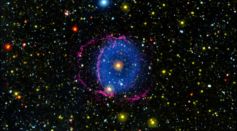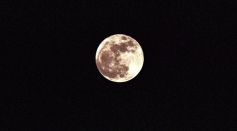SPACE

Elon Musk Eyes Building a Martian City From Glass Domes to Terraform; Would It Be Risky?
SpaceX to Reuse Dragon Spacecraft Fleet After Rocket Booster from NASA Crew-1 'Leaned'

The Universe is Basically Left-Handed: Here are Some Reasons Why

The ISS to Get Bigger Soon, Russian Cosmonauts Prepare for It

Scientists Look Closer Into The Blue Ring in Space; It Isn't A Blue Ring After All!
SpaceX ISS Docking was Automated, But Have a Go Yourself With Accurate Simulator

Buried With the Stars: Buy Your Deceased Loved Ones a Plot on the Moon!

Astronomers Want to Build Giant Telescope on Moon to See The Very First Stars

Scientists Find Similarities Between the Universe and the Human Brain

Is NASA SpaceX CRS-21 Dragon Ready to Collect Research Materials on ISS?

SpaceX's Commercial Space Travel Will Soon Be Less Than $1M, Elon Musk Says

NASA Plans to Operate Nuclear Power Plants on Moon and Mars by 2026
The Atmosphere of Uranus is Leaking Gas Once A Day
European Vega Rocket Suffers Major Anomaly During Launch of European Earth Observation Satellites
Most Popular

NASA Reveals an Astronaut Was Medically Evacuated From the ISS for the First Time After a Non-Emergency Health Scare

How the Immune System Fights Diseases: Antibodies, Vaccines & Lasting Protection

Sun Reaches Solar Maximum: What the Intensifying 11-Year Solar Cycle Means for Earth

Why Biodiversity Matters More Than We Think: How Species, Ecosystems, and Conservation Shape Our Planet




